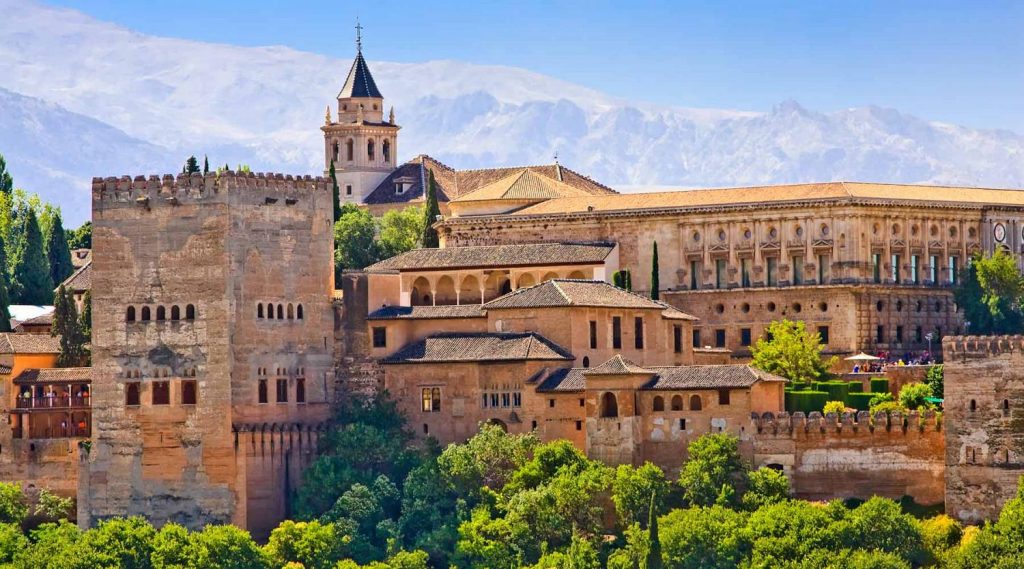A lot of travelers I know are often confronted with a dilemma: do they stay at a hotel or at an inn? And on that note, what even is the difference between an inn and a hotel?
The short answer: the difference between an inn and a hotel is that an inn is usually an independently-owned lodgings that travelers can rent, while hotels are owned by corporations and usually operating luxury amenities for travelers.
Of course, the differences don’t stop there, and unfortunately many hotel chains have started using the word ‘inn’ to give their smaller properties a quaint, small-time vibe (despite having tons of capital to back it up, something real inns have no access to) without sacrificing the amenities their chain is known for.
The Difference Between an Inn and a Hotel
From a traditional perspective, hotels are usually establishments located in the middle of a city or other urban areas. Other than providing simple accommodations like an inn, hotels offer an extensive range of amenities, from personalized services and housekeeping to breakfast buffets and personal chauffeurs.
Inns, on the other hand, offer less in terms of amenities, with many inns simply offering a clean room with a bathroom. However, a lot of travelers looking for a no-frills, intimate experience, prefer the simplicity of an inn, something that is sorely lacking in America at the moment. There are, of course, still plenty of inns in the country, but they’ve been relegated to rural locations far from the hustle and bustle of the city.
As for price, hotels are almost always more expensive than inns; of course, this increase in price covers the amenities you’ll be receiving, plus the personalized service and its prime location in the middle of the city. Of course, if you’re the no-frills no-extras type of traveler, and you don’t mind remote locations, then an inn is definitely something you should consider staying at. Take note, however, that many hotel chains are starting to use the word “inn” (i.e. Holiday Inn) for branding purposes. Just remember: inns are more like houses with spare rooms, while hotels are multi-room, multi-building establishments.
What is an Inn?

The origin of the inn goes all the way back to medieval Europe, when the Romans started creating their highly complex system of inter-country and inter-provincial highways. People living along or near these roads would often offer up their spare rooms, as well as a home-cooked meal and lodging for horses, to travelers for a small fee.
Over time, inns became an important part of European society: its purpose as temporary lodging for travelers meant that it also became a sort of hub for inter-town communications and was usually the first place people got news of far away places before the invention of the post office. Because inns were usually large houses, it also became a town’s impromptu gathering place for important functions.
Nowadays, many European and American inns still maintain this community spirit by offering an intimate experience that, despite the lack of personalized service, many travelers look for when they’re on the road.
What is a Hotel?
In essence, hotels are basically larger, more luxurious versions of inns. The word ‘hotel’ is derived from the French word hotel, which meant a building that received a large number of guests (coincidentally, this is also the root word for ‘hospital’).
An offshoot of the inn, hotels came about when mass transportation became more commonplace: as railways started crisscrossing the European continent, grand railway hotels started cropping up around train stations to cater to the upper-class travelers traveling on railroads.
Over time, this became the standard for many hotel chains: because they started out serving the upper crust of society, hotels became known for their personalized services, as well as their extensive list of amenities like swimming pools, multiple dining options, private room service, luxurious bathrooms and bedrooms, and many more.
Hotels were originally located in the middle of urban areas; this was because most train stations terminated right in the middle of cities. This also became something hotels became known for: luxurious lodgings in the middle of an urban area.
The first hotel, that is, a hotel in the sense that it offered personalized services and luxury amenities, was opened in 1768 in Exeter, England. However, it wasn’t until the opening of the grand Mivart’s Hotel in London in 1812 did it become a fashionable concept for Continental Europe. Over in America, the first hotel opened in New York as the City Hotel in 1792.
Layout

In terms of architecture, hotels and inns vary due to the volume of people they cater to. In general, hotels have multiple floors, multiple annexes, multiple bar and dining options, multiple amenities like swimming pools, gyms, conference halls, spas, and the like. This is because hotels aim to cater to as many guests as possible, and their amenities are the best way to entice more people to go.
On the other hand, inns are usually smaller buildings, often just a really large house, with 1 to 3 floors max. It usually only has 1 bar and dining option, no additional amenities, and is more focused on providing guests with a more intimate experience.
When Should You Stay at an Inn Instead of a Hotel?
Inns are perfect for people who are on a budget. Because they have less amenities, their operational costs are low, which means they don’t have to charge as much as hotels.
Because most traditional inns are located along the road, it’s also a great last minute or emergency accommodations for people who are on a road trip: it’s accessible and has all the basic amenities people need for long journeys.
It’s also perfect for no-frills travelers who aren’t looking for anything fancy: just a bed, a clean bathroom, a home cooked meal, and the company of other travelers.
When Should You Use a Hotel Instead of an Inn?
Hotels are perfect for people who aren’t on a tight budget and would like to maximize their stay in an unfamiliar location. Because of their multiple amenities, it’s also great for business meetings, conferences, and expositions. The extra amenities make it great for accommodating multiple guests.
Its central location is also great for travelers who are nervous about new locations: its in the middle of the city, which means its within walking distance of many landmarks and other places of interest.
Hotels are also a great choice for people who want to be pampered: depending on the hotel chain, travelers staying in hotels can have extensive amenities that will cater to all your pampering needs.



